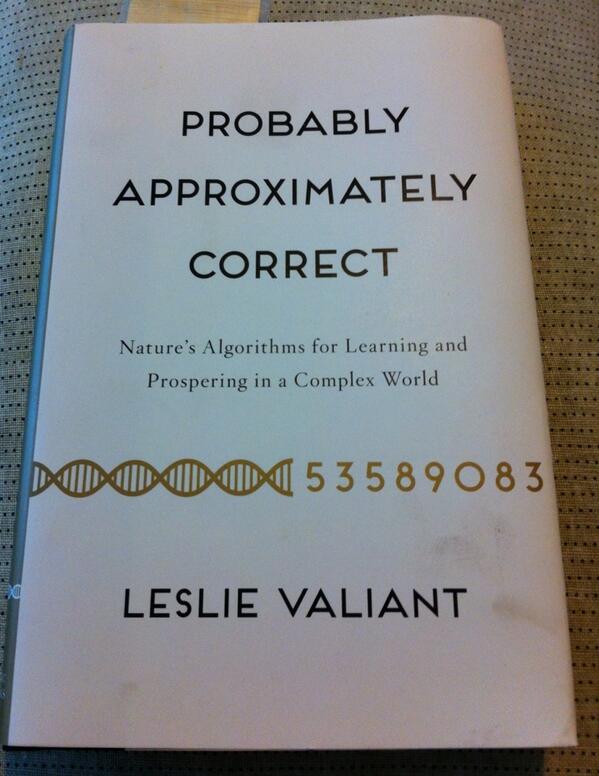Probably Approximately Correct

This is a very interesting book. The author presents the case for ecorithms (algorithms, heuristics perhaps) that could explain and ultimately allow quantitative assessment and testable predictions of the mechanisms (and timescale) of evolution and one of its most “mysterious” byproducts consciousness/cognition (I should perhaps not conflate these two).
The author looks at the central problem of evaluating and decision making based on incomplete information, small empirical samples and within biological and physical constraints and be successful. The linear/polynomial time algorithms (using the generalized concept of computation: universal Turing machines) for learning from inputs from external environments in a “theory-less” context could lead to “probably approximately correct” classifications, decisions and actions and be explanatory for evolution and perhaps human learning and human cultural evolution (with the latter having Lamarckian as well Darwinian aspects).
The book explores these matters through the lens of computer science (the author’s expertise). This is a very interesting and instructive perspective. The limits, and similarities and contrasts between computer systems and algorithms was well presented.
I think this book fits nicely with Penrose “Emperor’s New Mind” (which argues for non-algorithmic apsects to consciousness and learning), Kahneman’s “Thinking Fast and Slow” which explores the limitations of human reason (our hard wiring for making fast decisions with limited information but our limitations in statistical and probabilistic reasoning) and Silver’s “The Signal and the Noise”.
I had (and continue) to think hard about the concepts in the book. It is, however, I believe a very refreshing viewpoint to seek to explain the gaps in evolution, cognition and learning. The author ends by looking at issues of artificial intelligence and why this has been more challenging than anticipated and the authors appeal to reason in relation to fears about a ‘Sky-net’ future was very interesting. The integration of external inputs, the central role of learning, the power of inductive reasoning in and the need for composite induction and deductive reasoning (the latter indispensible for what the author calls theory-ful contexts) are all part of the authors rich explanation…it seemed to me “probably approximately correct”.